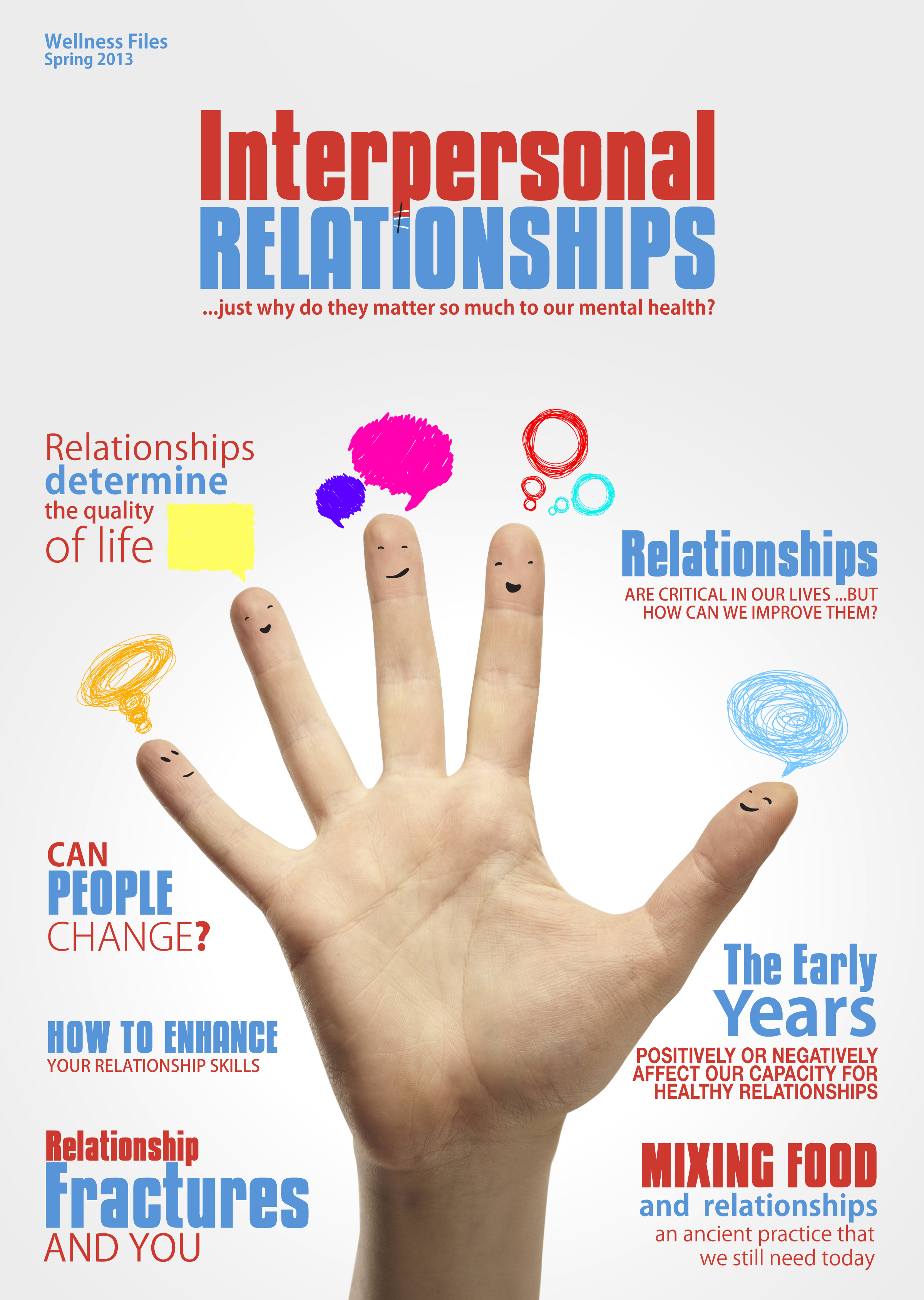Let's talk about relationships, baby! Not the kind where you're scrolling through dating apps at 3 a.m., but the real deal—the connections that shape our lives, hearts, and souls. Relationships are like a rollercoaster ride—full of ups, downs, twists, and turns. But hey, if you're here, it means you're ready to dive deep into what makes relationships tick and how to make them thrive. So buckle up, because we're about to embark on a journey of love, trust, and everything in between!
When it comes to relationships, there's no one-size-fits-all formula. What works for one couple might not work for another, and that's the beauty of it. But what if I told you there are universal principles that can help strengthen any relationship? From communication to compromise, we're breaking it all down so you can build a bond that lasts a lifetime.
Whether you're in a long-term relationship, just starting out, or even trying to figure out why things went south, this article has got your back. We're not just throwing buzzwords around here—we're diving deep into the science, psychology, and real-life examples of what makes relationships successful. So grab a coffee, get comfy, and let's explore the world of relationships together!
What Are Relationships Anyway?
Alright, let's start with the basics. Relationships are more than just two people liking each other's posts on social media. They're about building a connection that goes beyond surface-level interactions. It's about trust, respect, and understanding each other's quirks, flaws, and all the beautiful mess in between.
According to a study by the American Psychological Association, healthy relationships are linked to better mental and physical health. That's right—love can literally make you feel better! But let's be real, relationships aren't always sunshine and rainbows. They take effort, patience, and sometimes a whole lot of therapy. So how do you make it work? Let's break it down.
Types of Relationships
Not all relationships are created equal. Some are romantic, some are platonic, and some are just… complicated. Here's a quick rundown of the different types of relationships you might encounter:
- Romantic Relationships: The ones you see in movies—kissing in the rain, grand gestures, and all that jazz.
- Friendships: The OG connections that keep you grounded and sane.
- Family Relationships: Love 'em or hate 'em, they're the ones you're stuck with.
- Professional Relationships: The ones you have with coworkers, bosses, and clients. Think watercooler chats and networking.
Each type of relationship comes with its own set of rules, expectations, and challenges. But at the end of the day, they all require one thing: communication.
Why Communication Is the Key to Successful Relationships
Ever heard the saying, "Communication is key"? Well, it's not just a cliché—it's the truth. Without open and honest communication, relationships can quickly spiral into misunderstandings, hurt feelings, and even breakups. So how do you communicate effectively?
Start by listening. I mean really listening—not just waiting for your turn to speak. Pay attention to what the other person is saying, both verbally and non-verbally. And don't be afraid to express your own thoughts and feelings. Communication isn't just about talking—it's about creating a safe space where both parties feel heard and understood.
Tips for Better Communication
Here are a few tips to help you level up your communication game:
- Use "I" statements instead of "you" statements. For example, say "I feel hurt when…" instead of "You always do this!"
- Be specific. Instead of saying "You never listen to me," say "I feel ignored when you don't respond to my messages."
- Practice active listening. This means nodding, making eye contact, and asking follow-up questions.
Remember, communication isn't just about solving problems—it's about building a deeper connection with the people in your life.
Building Trust: The Foundation of Every Relationship
Trust is like the glue that holds relationships together. Without it, even the strongest bond can crumble. But building trust isn't something that happens overnight—it takes time, effort, and consistency. So how do you build trust in a relationship?
Start by being reliable. Show up when you say you will, follow through on your promises, and be honest—even when it's hard. Trust also means giving the other person space to be themselves without judgment or control. It's about creating a safe environment where both parties feel comfortable being vulnerable.
Rebuilding Trust After a Breakdown
Sometimes, trust gets broken—whether it's through betrayal, dishonesty, or a simple misunderstanding. Rebuilding trust isn't easy, but it's not impossible. Here's how you can start:
- Acknowledge the hurt. Don't sweep it under the rug—acknowledge what happened and how it made the other person feel.
- Take responsibility. If you're the one who broke trust, own up to your actions and apologize sincerely.
- Be patient. Rebuilding trust takes time, so don't expect it to happen overnight.
Trust is a two-way street, and it requires both parties to be committed to healing and moving forward.
Conflict Resolution: Turning Arguments Into Opportunities
Conflict is a natural part of any relationship. No two people are exactly alike, so disagreements are bound to happen. But here's the thing: conflict doesn't have to be a bad thing. When handled properly, it can actually strengthen your relationship by helping you understand each other better.
The key to resolving conflicts is to approach them with a mindset of curiosity and understanding. Instead of seeing the other person as the enemy, try to see them as a partner in solving the problem. Focus on finding a solution that works for both of you, rather than "winning" the argument.
Strategies for Effective Conflict Resolution
Here are a few strategies to help you navigate conflicts in a healthy way:
- Stay calm. If emotions are running high, take a break and revisit the conversation when you're both feeling more level-headed.
- Use "we" language. Instead of saying "You always do this," say "We need to figure out a way to make this work for both of us."
- Focus on the issue, not the person. Attack the problem, not each other.
Remember, conflict is an opportunity for growth—if you approach it with the right mindset.
Love Languages: Understanding How You Give and Receive Love
Ever wonder why some people feel loved through gifts, while others feel it through quality time? That's because we all have different love languages—ways in which we express and receive love. Understanding your own love language, as well as your partner's, can help you create a deeper and more meaningful connection.
There are five main love languages: words of affirmation, acts of service, receiving gifts, quality time, and physical touch. Each one speaks to a different way of showing and receiving love. By identifying your love language, you can tailor your actions to make your partner feel truly appreciated and loved.
How to Discover Your Love Language
Figuring out your love language doesn't have to be complicated. Here are a few ways to discover yours:
- Reflect on past relationships. Think about the times you felt most loved and appreciated. What was happening in those moments?
- Take a quiz. There are plenty of online quizzes that can help you identify your love language.
- Ask your partner. Sometimes, the people closest to us can offer insights we might not see ourselves.
Once you know your love language, you can start speaking it more intentionally in your relationships.
Boundaries: Protecting Your Relationship From Burnout
Boundaries are like invisible fences that protect your relationship from getting overrun. They help you maintain a healthy balance between your personal needs and the needs of the relationship. But setting boundaries isn't about keeping people out—it's about creating a space where both parties feel safe and respected.
Whether it's setting limits on screen time, defining personal space, or establishing rules around finances, boundaries are essential for any healthy relationship. The key is to communicate your boundaries clearly and respectfully, while also respecting the boundaries of the other person.
How to Set Healthy Boundaries
Here are a few tips for setting boundaries in your relationship:
- Be clear and specific. Don't expect the other person to read your mind—tell them exactly what you need.
- Be respectful. Boundaries shouldn't be used as a weapon—they should be a tool for creating harmony.
- Be open to negotiation. Sometimes, boundaries need to be adjusted based on the needs of both parties.
Remember, boundaries are a sign of respect—not rejection.
Long-Distance Relationships: Can They Work?
Love knows no boundaries, right? Well, maybe. Long-distance relationships can be incredibly rewarding, but they also come with their own set of challenges. From time zone differences to the lack of physical touch, there's a lot to navigate when you're in a long-distance relationship. But with the right mindset and strategies, they can definitely work.
The key to a successful long-distance relationship is communication. Stay connected through regular video calls, text messages, and even old-school letters. Plan visits whenever possible, and make the most of the time you do have together. And most importantly, trust each other implicitly—without trust, a long-distance relationship is doomed to fail.
Tools for Staying Connected
Here are a few tools to help you stay connected in a long-distance relationship:
- Video calling apps like Zoom or FaceTime.
- Collaborative apps like Google Docs or Trello for planning visits or special occasions.
- Snail mail! Sending letters or care packages can add a personal touch to your connection.
Long-distance relationships require extra effort, but they can be just as fulfilling as any other type of relationship.
Relationship Goals: Setting Expectations for the Future
Every relationship has its own set of goals and expectations. Whether you're dreaming of a white-picket-fence future or just hoping to make it through another year together, it's important to have a shared vision for where you're headed. But how do you set realistic relationship goals?
Start by having an open and honest conversation with your partner about your hopes and dreams. What do you both want out of the relationship? What are your long-term goals? And most importantly, are you both on the same page? Setting clear expectations can help prevent misunderstandings and conflicts down the road.
How to Set SMART Relationship Goals
Here's how to set SMART (Specific, Measurable, Achievable, Relevant, Time-bound) goals for your relationship:
- Be specific. Instead of saying "We want to be happy," say "We want to spend one night a week doing something fun together."
- Make it measurable. How will you know when you've achieved your goal?
- Ensure it's achievable. Don't set goals that are impossible to reach.
- Keep it relevant. Make sure your goals align with your values and priorities as a couple.
- Set a timeline. Give yourself a deadline for achieving your goals.
By setting SMART goals, you can create a roadmap for building a stronger, more fulfilling relationship.
Conclusion: Building a Relationship That Lasts
So there you have it—the secrets to building a strong, healthy relationship. From communication and trust to love languages and boundaries, there's a lot that goes into making a relationship work. But at the end of the day, it's all about effort, respect, and a willingness to grow together.
Remember, relationships aren't perfect—they're messy, complicated, and sometimes downright frustrating. But they're also beautiful, rewarding, and worth every bit of effort. So whether you're in a long-term relationship or just starting out, take the time to nurture the connections in your life. Because at the end of the day, relationships are what make life worth living.
Now it's your turn! Share your thoughts, experiences, and tips in the comments below. And don't forget to check out our other articles for more insights into love, life, and everything in between. Here's to building stronger, healthier relationships—one conversation at a time!
Table of Contents


